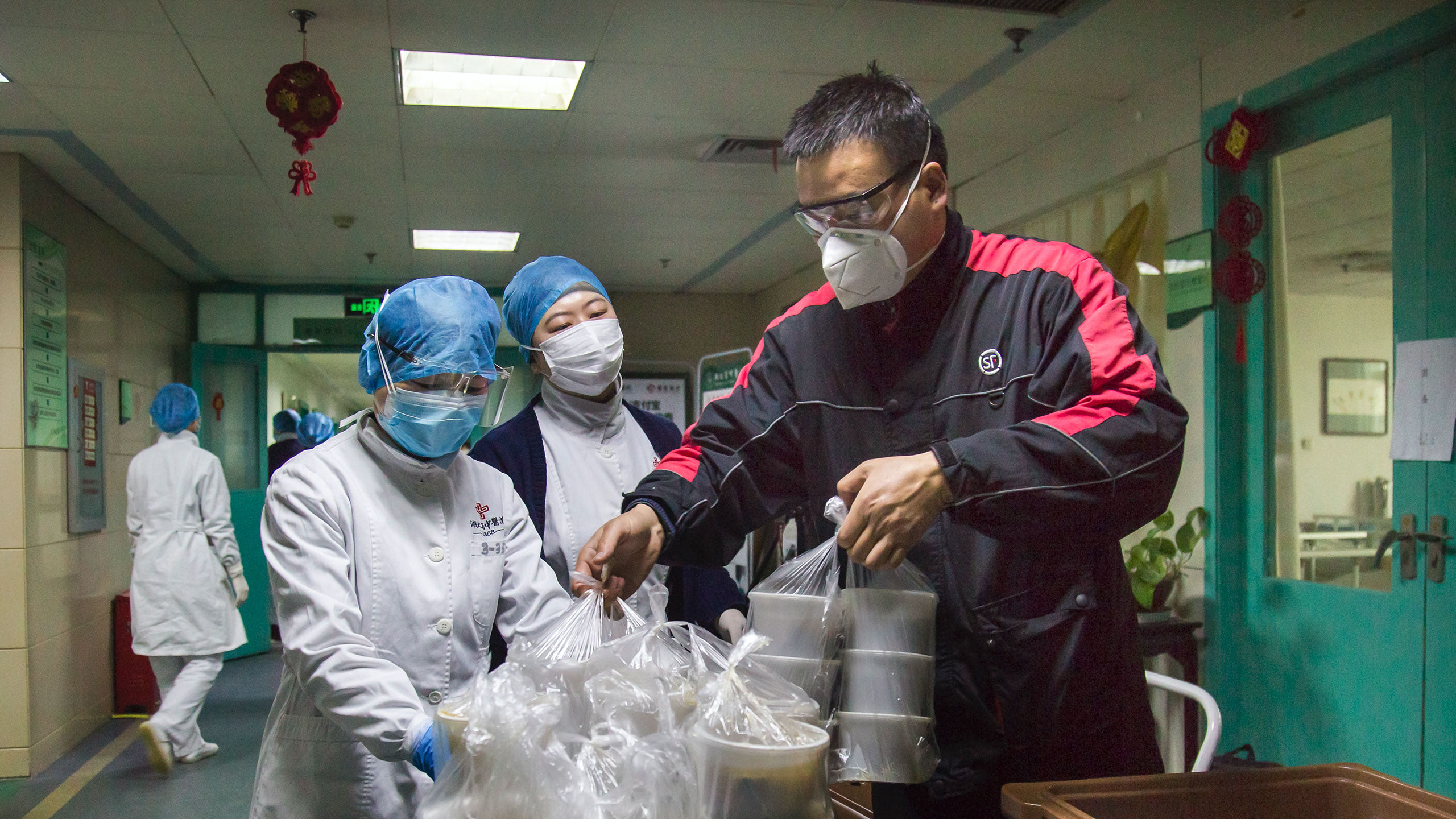
How China got through the pandemic crisis, relying on people, not technology
When the lock-down was announced in Wuhan, China, on 23 January 2020, all means of transportation out of the city of 11 million people were halted. Next came a complete stop on public transportation within the city.
Transitioning to work online was out of question for workers in Wuhan, the first city in the world to go into lockdown.
Wuhan’s 11 million residents were preparing for Chinese New Year when the city was shutdown literally overnight. The lockdown lasted 76 days and in this high-tech hub it was people power that kept essential services flowing.
One of the world’s major technology powerhouses, China was caught off-guard when the pandemic hit.
Even with the worlds’ most sophisticated tech available to facilitate working-from-home, such practices were never widely rehearsed before the crisis.
Like neighbouring Japan and South Korea, China’s work culture is about being present and staying in the office for long hours. As the first to experience COVID-19 and without people being at least somewhat familiar with remote work, technology alone was powerless to take work online.
For an e-commerce giant, online shopping in Hubei, the most affected Chinese province, was nearly halted during the lockdown due to the restriction on movements of people and goods.
Despite its agile technology culture, e-commerce remained stuck in the “business as usual” ethos. When things suddenly changed and residential compounds became confined spaces during the lockdown, it was back to “no-tech” or “low-tech” with people moving and distributing essential goods door-to-door.
Fresh produce and essential goods were delivered to households by mobilising the local “community services” staffed by neighbourhood Party committees.
It was the human touch that stood up to the challenge faster and firmer than tech did.
The lock down coincided with Chinese New Year. Offices were empty as people were preparing for what should have been a one-week holiday celebrating with family and friends. Little did the people of Wuhan realise they would be away from their workplaces for 76 days.
As the first place to experience the breakout of COVID-19, Wuhan’s residents, along with most of China, had zero time to transition to working-from-home. Suddenly, under the government’s encouragement of keeping people employed, many were taking “paid leave”.
With world’s best technologies available (apps like DingTalk by Alibaba has supported online work since 2014), plus one of the world’s fastest and cheapest internet covering most of China, moving work online lacked not the technology but the cultural acceptance and readiness. With a work culture that promotes spending long hours in the office (see our podcast on #996 in China), working from home had not been widely practised across the country. This presented real challenges to move work online even when faced with no other choices.
Unlike the boost experienced by Australia’s e-commerce during the shut-down, the digital economy was the first to go when the lockdown was implemented in Wuhan. A complete lockdown meant not only a clamp on people’s movement; goods delivery was also halted. The restrictions were not just for non-essential goods, food and fresh-produce deliveries were also suspended. Instead of the e-commerce apps that most people in China deal with daily, WeChat groups were formed in neighbourhood compounds where orders for essential goods were placed by messages. Neighbourhood Party committees were mobilised as delivery workers, moving produce into residential compounds, delivering door-to-door to people in need. With no private transportation permitted, cars were shared by residential compounds with volunteer drivers helping people who needed medical attention to get to hospitals.
The lesson may be profound, in a country known for taking leaps in technological advances to provide wide-ranging convenient solutions, technology didn’t provide a way out in the pandemic crisis: people did. It was easy to assume a crisis like COVID-19 would have been an opportunity for us to put our technologies to the test and “let the robots save the people”. With all the apps and hardware available to perform remote work or no-contact delivery in urban China, technology was not as quick to respond and adapt as the humans were.
The development of a technology is not immune to “panic and neglect” cycle. Technological solutions work well when we are in “business as usual”, promoting efficiency and providing convenient solutions that make our lives better. However, inside China the tech failed to help its people to respond to unforeseen events the way that others around the world did.
In normal days it seemed to make little sense to coordinate expensive resources to test our tech-ability to deal with low probability events with catastrophic outcomes, such as a global pandemic. The opportunity cost of not leaving precious resources and capabilities to accelerate our economy seems high. But when the real crisis comes, having just the tech but no rehearsal of using it in a crisis, has paralysed economies and generated grave life consequences. When the wolf actually comes, crying out what we could have done better the next time is human. But when we recover from the current crisis, the next one seems so far away that we are back focusing technological capacity on short-term efficiency acceleration again, leaving us no more prepared the next time.
Sociotechnical systems emphasise the interrelatedness of technology and society as a whole. Having a well-performing technology is not enough if the people were only conditioned to life as usual. China has learned this grave lesson and shifted its focus: it is now aggressively rolling out policies encouraging SMEs to participate in the “cloud economy”, developing solutions for remote work or education, and e-commerce with minimum physical participation by humans. As it seems that we’re close to getting back to “business as usual” here in Australia, there might be further lessons to be learned from China in preparing for those “unusual times” going forward.
This is part of a series of insights related to Coronavirus (COVID-19) and its impact on business.
Image: Bin Zhang. Image rights belong to the photographer and may not be republished without permission.
Kishi Pan is the China Analyst at Sydney Business Insights and a Senior OPS Manager at Huafa Industrial Shares. Her research interest is in urbanisation and the relationship between technology and people.
Share
We believe in open and honest access to knowledge. We use a Creative Commons Attribution NoDerivatives licence for our articles and podcasts, so you can republish them for free, online or in print.







